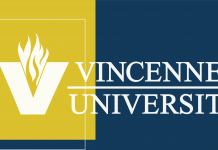DEI: Strengthening or Weakening the Bonds of American Society?
by JOE WALLACE
July 12, 2024
Diversity, Equity, and Inclusion (DEI) initiatives have become increasingly prominent in American workplaces, educational institutions, and public discourse. Proponents argue that DEI fosters a more inclusive and equitable society, while critics claim that it undermines meritocracy and stifles free speech. This article examines how DEI impacts the bonds between American citizens, the dynamics of public dialogue, the competence of the workforce, and the overall benefits and drawbacks to society.
The Impact of DEI on Social Cohesion
DEI initiatives aim to create environments where individuals from diverse backgrounds feel valued and included. By promoting diversity, equity, and inclusion, these programs seek to bridge gaps between different demographic groups, fostering a sense of belonging and mutual respect. In theory, this can strengthen social cohesion by encouraging empathy and understanding among citizens. When people from diverse backgrounds collaborate and share their experiences, it can lead to greater innovation, problem-solving, and cultural enrichment.
However, there is a counterargument that DEI can sometimes exacerbate divisions rather than heal them. Critics argue that DEI, when poorly implemented, can lead to resentment and polarization. For instance, initiatives that are perceived as preferential treatment for certain groups can breed feelings of unfairness among those who do not benefit directly. This perception can weaken the bonds between citizens, creating an “us versus them” mentality.
DEI and Constructive Dialogue
A significant concern regarding DEI is its potential to suppress constructive dialogue. The fear of being labeled as insensitive, racist, or sexist can stifle open discussion and debate. This phenomenon, often referred to as “cancel culture,” can deter individuals from expressing dissenting opinions, even if those opinions are articulated respectfully and constructively. In this context, DEI can be seen as a de facto negation of freedom of speech, where the fear of social or professional repercussions limits open discourse.
The suppression of dialogue can be particularly detrimental in academic and professional settings, where the exchange of ideas is crucial for growth and innovation. When people are afraid to speak their minds, it stifles the diversity of thought and prevents society from addressing complex issues in a nuanced and comprehensive manner. Constructive criticism and debate are essential components of a healthy democracy, and when these are compromised, it can weaken the societal fabric.
DEI and Workforce Competence
One of the contentious aspects of DEI is its impact on the competence of the workforce. Proponents argue that DEI helps identify and nurture talent from a wider pool, leading to a more skilled and capable workforce. By removing barriers to entry and providing opportunities for historically marginalized groups, DEI can elevate the overall skill level and creativity within organizations.
However, critics contend that DEI can sometimes lead to the hiring or promotion of individuals based on their demographic characteristics rather than their qualifications or competencies. This can result in unqualified individuals being placed in positions for which they are ill-suited, ultimately harming organizational performance and efficiency. The key to effective DEI implementation lies in balancing the pursuit of diversity with the maintenance of meritocratic standards, ensuring that all individuals, regardless of background, meet the necessary qualifications for their roles.
Societal Benefits and Losses Due to DEI
The benefits of DEI include increased representation and opportunities for historically marginalized groups, fostering a more inclusive and equitable society. This can lead to improved innovation, as diverse teams often bring different perspectives and solutions to the table. Furthermore, DEI initiatives can help address systemic inequalities and promote social justice, creating a fairer society for all.
On the downside, poorly implemented DEI initiatives can lead to resentment, division, and a sense of unfairness among those who feel excluded from these programs. Additionally, the suppression of free speech and constructive dialogue can hinder societal progress and innovation. There is also the risk of undermining meritocracy, which can lead to inefficiencies and decreased productivity in various sectors.
Conclusion
DEI is a complex and multifaceted issue with both positive and negative implications for American society. While it has the potential to strengthen social bonds, promote equity, and enhance workforce skills, it can also lead to division, suppression of free speech, and concerns about competence. The success of DEI initiatives depends largely on their implementation—balancing diversity and inclusion goals with the principles of meritocracy and open dialogue is crucial for maximizing the benefits and minimizing the drawbacks of DEI in American culture.
FOOTNOTE: The City-County Observer posted this article without bias or editing.





